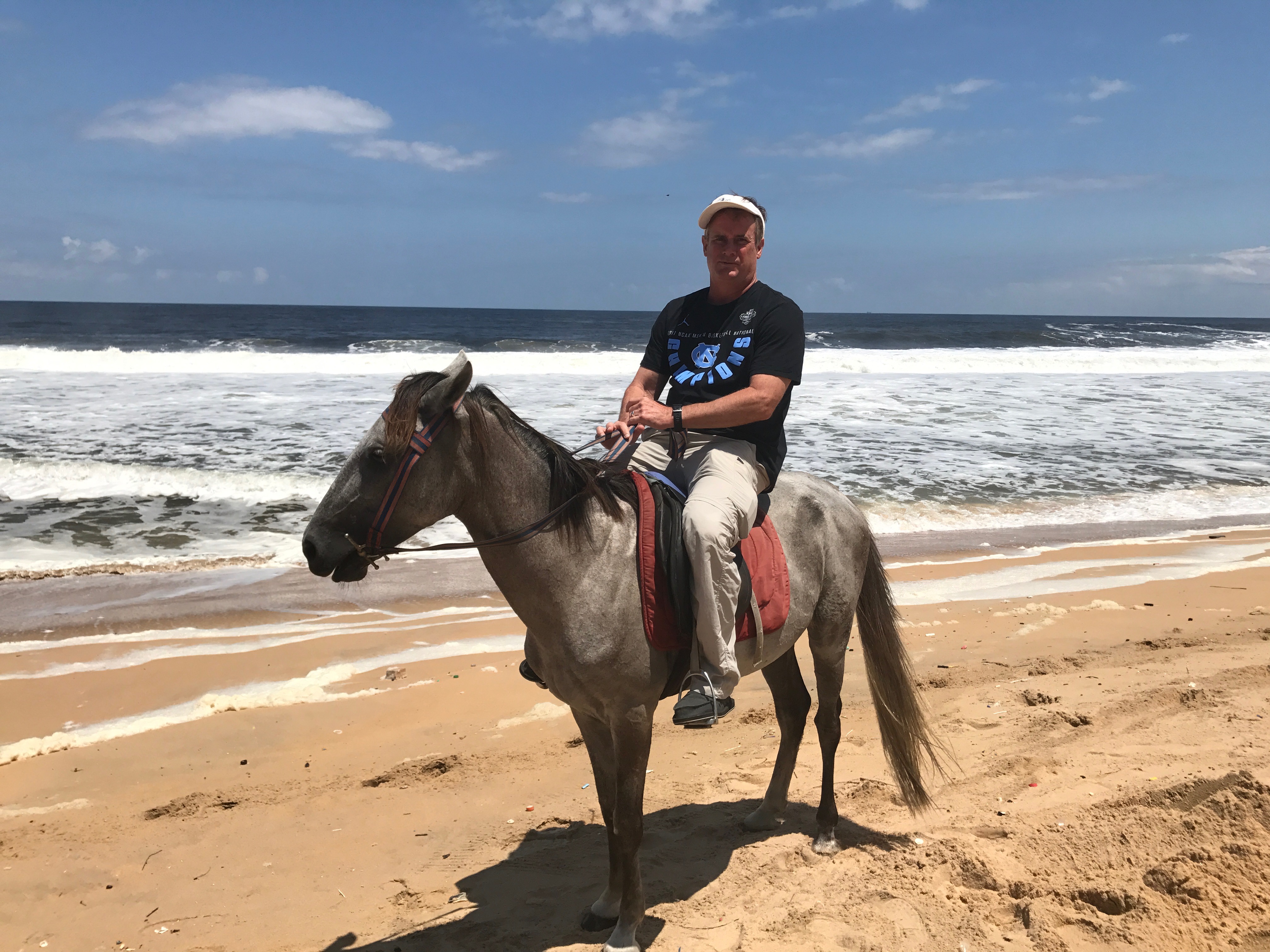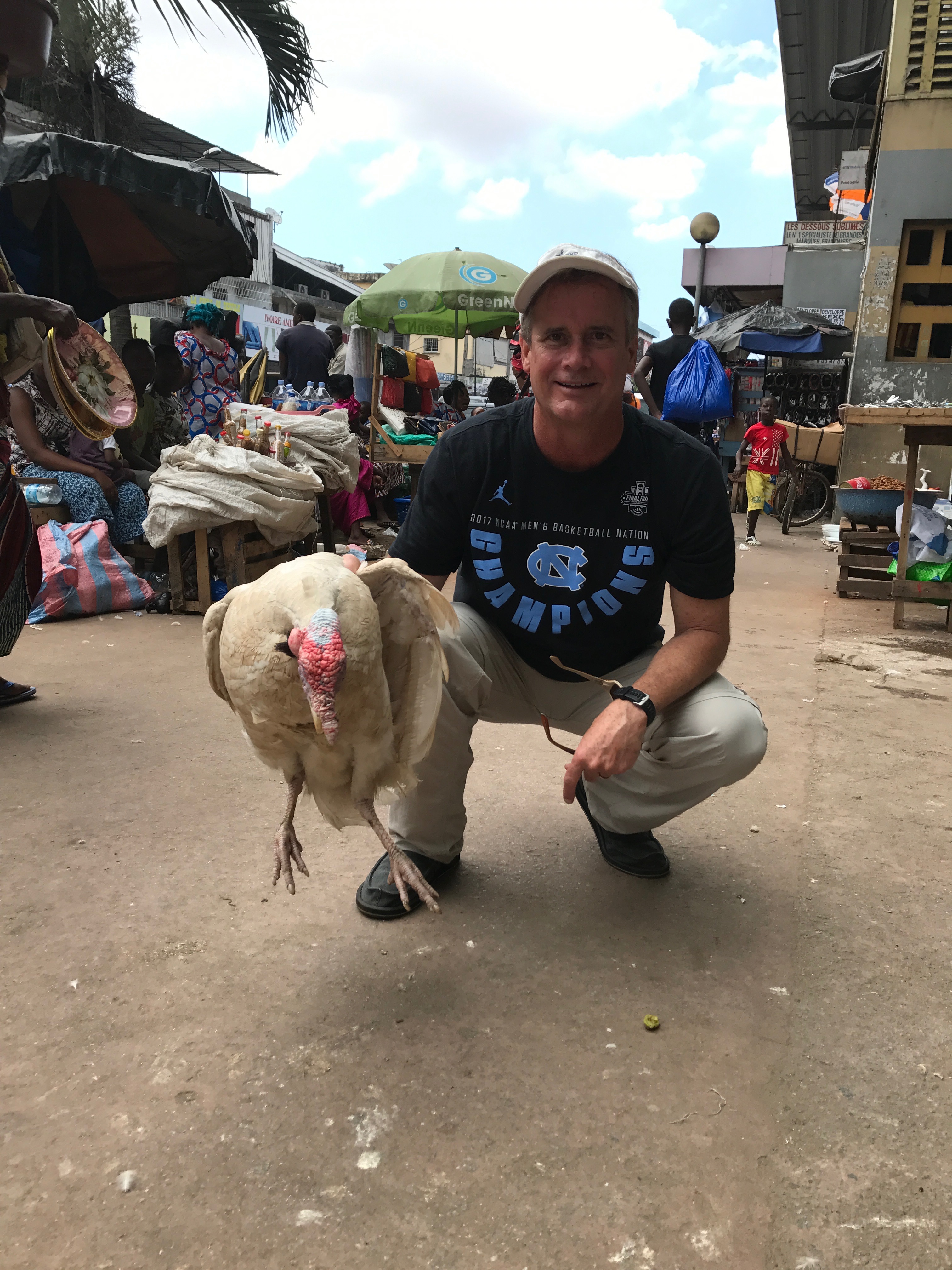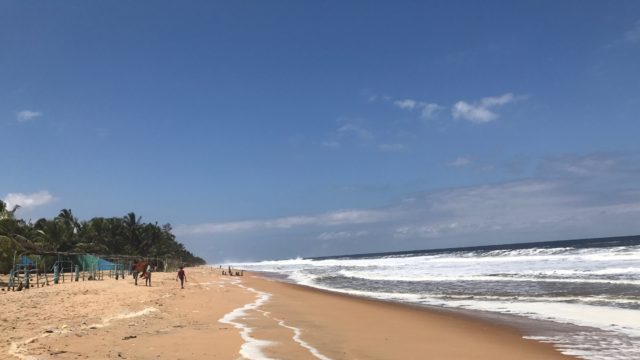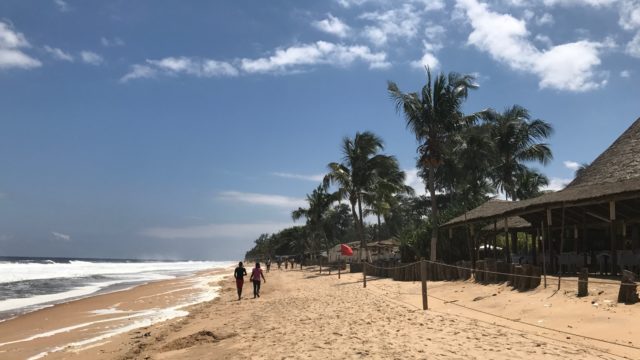
Country Information:
The Côte d’Ivoire, or the Ivory Coast. About 27 million people live here and the capital is Yamoussoukro. The Côte d’Ivoire is a religiously secular country, with roughly equal split between Islamic and Christian followers. The official language is French. Its top exports are cocoa beans, refined petroleum, cocoa paste, coconuts, Brazil nuts, cashews, and gold.
In the capital, check out the Basilica of Our Lady of Peace, an architectural feat and the record holder for the largest church in the world. It is absolutely stunning and worth a visit. Many people use their cameras regardless of whether they paid the fee, so it is up to the visitor to decide whether to pay or not, though the fee will go towards keeping the church well-maintained. The stained glass inside is mind-blowing when light filters through the windows just right.
Travelers looking to get out of the city life can head to the well-maintained Banco National Park in Abidjan, though be prepared to plan in advance as there are a lot of mosquitoes. Bring food and water, too, if planning to be out for a while (water is a must). This is a relatively untouched jungle area, making it a great place to see different plant, bird, and butterfly species.
Jim’s Perspectives:
From the moment you arrive in Cote d’ivoire you can tell this place is different than the other countries in West Africa. It has a more upbeat vibe despite its many uprisings and civil wars. It is clearly the jewel of the region and westerners driving through downtown Abidjan would think it far more aesthetically pleasing than most Midwestern capitals.
Made the most of my time here starting with learning more about the “fanice”, where men wash clothes in the river. Its quite a remarkable site to watch 50 or 60 men rinse their clothes. They’re washing in dirty river water, soap them down and then beat the crap out of the clothes to dislodge the dirt!
Next I went to Abobadoume to make Attiéké , a food eaten by everyone here from those in poverty to the president himself. This pasta or rice substitute is eaten with dried fish or chicken and is an important part of the diet.
We then drove to Grand Bissau, the site of the former beachside capital city during the French colonial period [late 1800s]. Took a stroll down the beach and tried to get a skinny horse to gallop or at least canter but it was too lazy. Ended my time here learning how the locals make palm wine and had a taste. I stayed at the Hotel Abidjan which was exceptional definitely the finest in the country.



